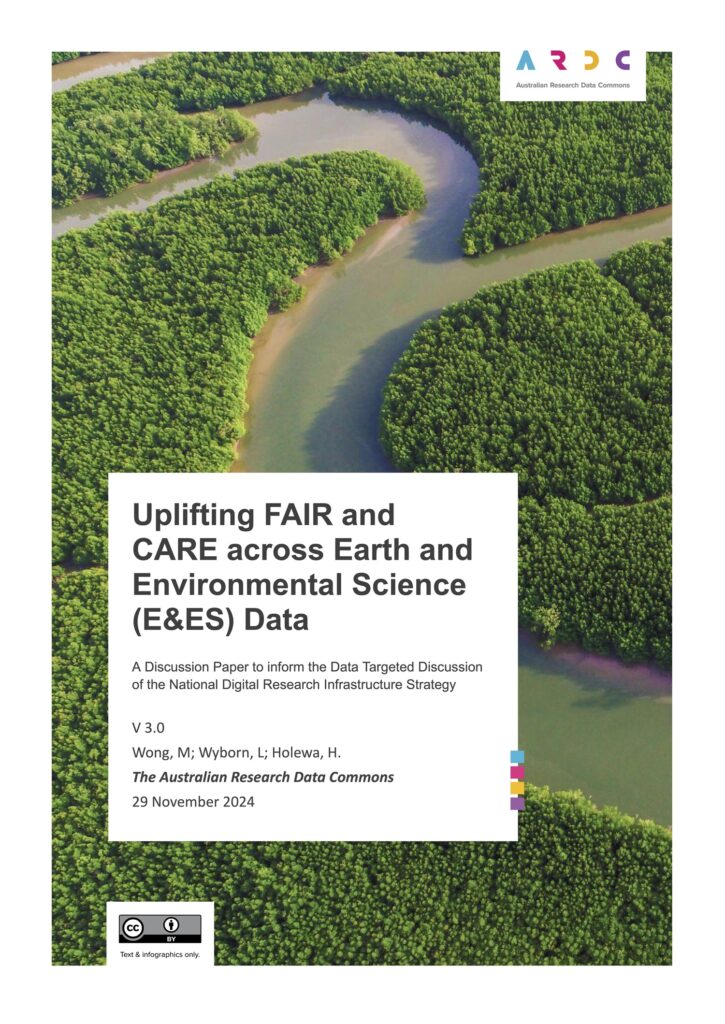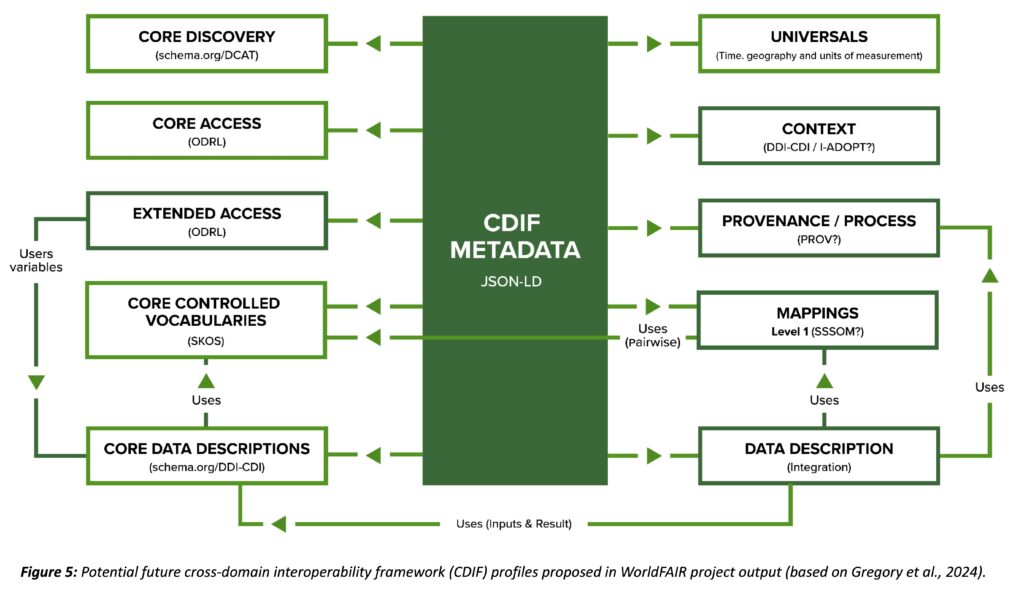 The Australian Research Data Commons (ARDC) has released a discussion paper “Uplifting FAIR and CARE across Earth and Environmental Science (E&ES) Data. A Discussion Paper to inform the National Data Research Infrastructure Strategy”.
The Australian Research Data Commons (ARDC) has released a discussion paper “Uplifting FAIR and CARE across Earth and Environmental Science (E&ES) Data. A Discussion Paper to inform the National Data Research Infrastructure Strategy”.
Outcome 3 of Australia’s 2024 National Data Research Infrastructure (NDRI) Strategy aims for consistent standards for data collection, curation, and access by 2030 through a cross-sector data management framework that supports adopting the FAIR and CARE principles. This discussion paper was prepared by the Australian Research Data Commons (ARDC), outlining core challenges and recommendations for the Earth and Environmental Sciences (E&ES) in delivering this outcome.
The paper presents a three recommendations. Notably, these include recommending implementing a WorldFAIR Case Study approach and the adoption/adaption of the Cross-Domain Interoperability Framework (CDIF). Also highlighted are the importance of core data servies and the need for a forum (or fora) to uplift the FAIR and CARE principles.
Recommendation 1. Converge toward a national framework around core principles and standards for progressing FAIR and elements of the CARE Principles in E&ES. Investigate implementing a WorldFAIR Case Study approach, including the adoption/adaption of the Cross-Domain Interoperability Framework (CDIF), and consider the intersection/s and complementarities between CDIF and the CARE principles.
Recommendation 2. Uplift core data services and outreach to support FAIR and elements of the CARE Principles for E&ES. The core services include Research Data Australia (RDA) (2.1), Research Vocabularies Australia (RVA) (2.2), and the implementation of the National PID Strategy (National PID services) (2.3), which are available to all researchers and research data facilities through the Australian Research Data Commons (ARDC). Uplifting these ARDC core services will also require an equivalent enhancement in the capabilities of multiple Australian individual organisations and institutions that host E&ES data, particularly for delivering comprehensive FAIR metadata from their data repository services, including for discovery through RDA.
Recommendation 3 Activate leadership and coordination to uplift FAIR and elements of CARE for E&ES data. A forum (or maybe several connected fora) will be required to collectively converge on a shared vision, identifying high-impact priorities and common needs to deliver on core principles and standards required to uplift FAIR and CARE. Existing forums may be leveraged, such as the National Earth and Environmental Science Facilities Forum and International E&ES Research Infrastructures, international scientific initiatives and unions/societies operationalising machine-actionable FAIR, and funders and publishers engaged. Working together with Indigenous-led governance structure/s and initiatives for CARE in E&ES that represent and empower Indigenous Data Governance and Indigenous Data Sovereignty for Aboriginal and Torres Strait Islander researchers, organisations, and communities across Australia is essential.
The paper also makes a number of specific recommendations for how the Australian National Data Research Infrastructure (NDRI) Strategy and Australian National Data Research Infrastructures could respond to the recommendations made in the WorldFAIR Policy Brief and the approach detailed in the Cross-Domain Interoperability Framework (CDIF).
Wong, M. R., Wyborn, L., & Holewa, H. (2024). Uplifting FAIR and CARE across Earth and Environmental Science (E&ES) Data. A Discussion Paper to inform the Data Targeted Discussion of the National Digital Research Infrastructure Strategy (3.0). Zenodo. https://doi.org/10.5281/zenodo.14241825

